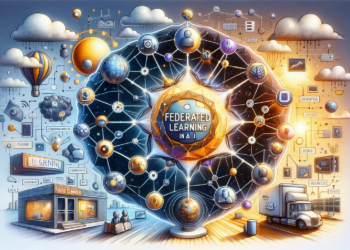A Fundamental Pillar in Current Artificial Intelligence Theory and Practice
Artificial intelligence (AI) is a discipline that consolidates theoretical advances and practical applications with an impressive pace of innovation. A central conceptual element in many of these innovations is the notion of entropy, a mathematical principle that arises from thermodynamics and information theory. As a criterion for uncertainty and disorder in a system, entropy is crucial in AI algorithms, ranging from machine learning to optimization.
Entropy in Information Theory
Claude Shannon formalized entropy within the realm of information theory as a measure of the amount of uncertainty in a random variable, or alternatively, as the degree of surprise in the outcome of a random event. This is directly related to AI in data compression, encoding, and lossless information channelling, and is instrumental in coding procedures used in neural networks to efficiently transfer information between layers.
Practical Applications: Data Compression and Transmission
Entropy has led to the development of fundamental data compression algorithms, such as those based on Huffman coding and range compression, as well as protocols for robust data transmission against errors like Turbo code and LDPC channel coding.
Entropy in Machine Learning
In machine learning contexts, entropy is often used as a loss function for classifiers, particularly within decision tree algorithms and cross-entropy models for deep neural networks. Shannon’s entropy serves to represent the impurity in a training set and to measure the effectiveness with which a model makes probabilistic predictions.
Model Optimization with Cross-Entropy
Cross-entropy, an extension of Shannon’s entropy, measures the divergence between two probability distributions – the ideal differentiation and the one predicted by the model. By optimizing cross-entropy, classification of instances into categories improves, typically within pattern recognition and classification tasks in computer vision and natural language processing (NLP).
Entropy in Optimization Algorithms
Entropy also plays a role in optimization algorithms used to train AI models, like maximum entropy search or gradient ascent algorithm. It is utilized to ensure proper exploration of the solution space by avoiding premature convergences at local minima, promoting a balance between exploration and exploitation.
Use Case: Optimization and Reinforcement Learning
In reinforcement learning, entropy is used as a regularization term in the objective function to encourage a sufficiently diverse action policy. This is well illustrated in case studies such as the development of autonomous agents in complex environments, where entropy maximization has generated more robust and general behavior policies.
Entropy and the Physics of Quantum Computing
The concept of entropy has extended beyond its classical formulation, finding its place at the forefront of quantum computing. Von Neumann entropy, an adaptation of classical entropy to the quantum context, quantifies information and disorder in quantum systems, playing a significant role in the understanding and design of algorithms for quantum computers and their implications for artificial intelligence.
Future Implications: Quantum AI
Quantum computers promise to revolutionize not only cryptography and the simulation of physical phenomena but also the field of AI. Von Neumann entropy could unlock new optimization algorithms and learning methods that leverage the unique properties of quantum superposition and entanglement to process information in ways thus far inaccessible to classical computers.
Reflection on Recent Advances and Future Directions
Recent advancements include the use of entropy in generative adversarial networks (GANs) to promote diversity in the generated samples, mitigating the mode collapse problem. Additionally, differential entropy is emerging in the theory of privacy, particularly in the use of differential privacy mechanisms that minimize the amount of sensitive information disclosed during data analysis.
Looking to the future, it is projected that new formulations of entropy and its application in unsupervised and semi-supervised learning methods will pave the way for increasingly autonomous and adaptable AI systems. Moreover, the convergence of AI with quantum computing could bring entropy to the core of developing a new class of intelligent systems with unprecedented computational capabilities.
In summary, entropy is a powerful concept that forms the backbone of many contemporary developments in AI. Its study and application not only enhance our understanding of current intelligent systems but also pave the way toward future advances in artificial intelligence theory and practice.






















